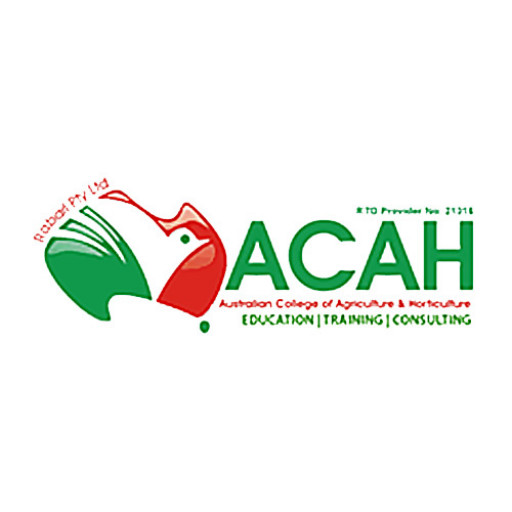The Bachelor of Parks and Gardens program at Swinburne University of Technology offers students a comprehensive education in the design, development, management, and conservation of public and private outdoor spaces. This innovative degree combines principles of landscape architecture, horticulture, environmental science, and urban planning to prepare graduates for dynamic careers in the landscaping and parks management industry. Throughout the course, students develop practical skills in landscape design, plant selection, site analysis, and sustainable practices, enabling them to create functional, aesthetically pleasing, and environmentally responsible outdoor environments. The program emphasizes hands-on experience through workshops, industry projects, and fieldwork, providing students with real-world exposure and opportunities to collaborate with industry professionals. Graduates of the Bachelor of Parks and Gardens will be equipped to contribute to a diverse range of projects, including park development, urban renewal initiatives, botanical gardens, and private estate landscaping. They will also gain insights into ecological preservation, project management, and the integration of innovative technology in landscape design. With a strong focus on sustainability and urban ecology, the program prepares students to address contemporary challenges related to climate change, urban expansion, and environmental stewardship. The curriculum is designed to foster creative problem-solving, technical proficiency, and sustainable practices, ensuring graduates are well-positioned for success in a growing industry. Upon completion, students can pursue careers in park and garden design, landscape construction, environmental consultancy, and government agencies responsible for public green space management. The Bachelor of Parks and Gardens at Swinburne University combines theoretical knowledge with practical application, making it an ideal choice for individuals passionate about creating and maintaining beautiful, sustainable outdoor environments that enhance community well-being and ecological health.
The Bachelor of Parks and Gardens program at Swinburne University of Technology is designed to prepare students for a dynamic career in landscape design, horticulture, and environmental planning. This comprehensive program provides students with a strong foundation in the principles of landscape architecture, environmental sustainability, plant biology, and project management. Throughout the course, students will explore a variety of topics including site analysis, ecological restoration, urban parks, garden design, and the use of sustainable materials, preparing them to create innovative outdoor spaces that enhance community well-being and environmental health.
Students will engage in hands-on learning experiences through practical studios and industry placements, enabling them to apply their knowledge in real-world contexts. The program emphasizes sustainable practices and the use of native plants, equipping graduates with the skills needed to address contemporary challenges such as climate change and urban heat islands. Additionally, students will develop proficiency in drawing, computer-aided design (CAD), and other digital tools essential for modern landscape architecture.
The curriculum is designed to foster creativity, technical expertise, and a comprehensive understanding of ecological principles. Collaborations with industry professionals and ongoing projects offer networking opportunities and insights into current industry standards. Graduates of the Bachelor of Parks and Gardens will be well-prepared for careers in landscape design firms, government agencies, environmental consultancies, and community organizations, contributing to the creation and maintenance of sustainable and aesthetically pleasing outdoor environments. The program ultimately aims to develop innovative thinkers who are passionate about enhancing the natural and built environments for future generations.
The Bachelor of Parks and Gardens program at Swinburne University of Technology requires students to complete a comprehensive curriculum designed to develop technical skills, creative design abilities, and practical knowledge in the fields of landscape architecture, horticulture, environmental sustainability, and project management. The program includes core courses such as Introduction to Landscape Design, Plant Identification and Selection, Environmental Planning, Landscape Construction, and Sustainable Design Principles. Students are also expected to undertake electives that may cover topics like Urban Greening, Heritage Conservation, and Landscape Ecology, allowing for specialization according to individual interests and career goals. Practical experience is emphasized through industry placements and hands-on projects, enabling students to apply theoretical knowledge in real-world contexts. Additionally, the program incorporates components on environmental legislation, ethical practices, and community engagement to prepare graduates for diverse professional environments. To graduate, students must successfully complete a specified number of credit points, including a capstone project that demonstrates integration of skills and knowledge acquired throughout the course. The program fosters collaboration, innovation, and critical thinking, essential for addressing modern challenges in parks and gardens design, maintenance, and sustainability. Students are also encouraged to participate in extracurricular activities, industry seminars, and networking events to enhance their professional development. Admission requirements typically include a relevant prior academic qualification and may involve an interview or portfolio review to assess creative potential. Overall, the program equips graduates with the competencies necessary for careers in landscape architecture, urban planning, environmental consultancy, and related fields, emphasizing sustainability and community well-being.
The financing of the Parks and Gardens program at Swinburne University of Technology is structured to provide students with accessible and flexible study options. The program offers various payment methods designed to accommodate both domestic and international students. Domestic students may be eligible for government-subsidized schemes such as Austudy, Youth Allowance, or the Commonwealth Government's Higher Education Loan Program (HELP), including the HECS-HELP scheme, which allows students to defer most of their tuition fees until they secure employment after graduation. International students are required to pay tuition fees upfront, and Swinburne offers various payment plans and scholarships to assist with costs.
The university also provides financial support through scholarships aimed at recognizing academic excellence, supporting disadvantaged students, or promoting diversity in the field of parks and landscape design. These scholarships can significantly reduce the financial burden and are available through application processes conducted prior to enrollment. Additionally, students may explore external funding opportunities such as private loans, sponsorships, or employer-funded programs, depending on their circumstances.
Students are encouraged to carefully review the fee structure available on the Swinburne website and consult the university's financial counseling services for personalized advice. The program's affordability is complemented by flexible study options, including online courses and part-time study, allowing students to balance their education with work or personal commitments. Paying tuition fees can be managed through installments or lump-sum payments, with detailed information and deadlines provided during enrollment.
Financial planning is an integral part of undertaking higher education at Swinburne, and the institution strives to ensure that students have access to compensation schemes and financial aid to minimize economic barriers. Prospective students are advised to stay updated with changes in government policies and university-specific funding options to optimize their financial planning. Overall, Swinburne's comprehensive approach to financing aims to make the Parks and Gardens program as accessible as possible to a diverse student body, supporting their academic and professional aspirations in landscape design and horticulture.
The Bachelor of Arts (Parks and Gardens) at Swinburne University of Technology is a comprehensive program designed to equip students with the skills and knowledge necessary for a successful career in landscape architecture, park management, urban planning related to green spaces, and garden design. This program emphasizes a multidisciplinary approach, integrating design, environmental sustainability, horticulture, and urban development principles. Students engage in both theoretical coursework and practical projects, which often include site analysis, landscape construction, digital design techniques, and sustainable practices. The curriculum aims to develop students' creative and technical abilities, enabling them to design functional, sustainable, and aesthetically pleasing outdoor spaces that can enhance communities and the environment.
Throughout the program, students gain hands-on experience through industry placements, workshops, and collaborative projects with real-world clients. This practical focus ensures graduates are well-prepared to meet the demands of the workforce, whether working independently, in consultancy firms, or within governmental agencies responsible for parks, public spaces, and environmental planning. The program also covers the recent advances in green infrastructure, urban horticulture, ecology, and conservation management. Swinburne’s emphasis on digital tools and innovative design software equips students with modern skills applicable across various landscape projects.
Students benefit from the university’s strong links with industry partners and professional bodies, providing networking opportunities, mentorship, and exposure to current industry trends. Additionally, the program supports research and innovative thinking, which are vital in addressing contemporary challenges such as climate change, urbanization, and biodiversity loss. Graduates of the program can pursue careers as landscape designers, urban planners, environmental consultants, or parks and recreation managers, among others. The Bachelor of Arts (Parks and Gardens) aims to produce creative, environmentally conscious professionals capable of making meaningful contributions to urban and rural landscape development, fostering sustainable environments for future generations.







